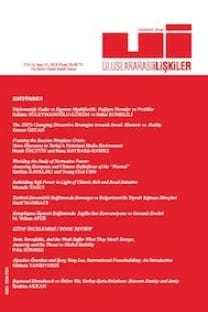Küresel Politikanın Uzun Döngüsü ve Ulus-Devlet
Modern zamanlarda birbiri ardından gelen dünya güçlerinin küresel sistemi şekillendirdiğini söylemek mümkündür. Küresel örgüt için aktif odak şu ana kadar hep bir dünya gücü olmuştur ve bu gücün kimliği, değerleri ve kaynakları modern dünya tecrübesini etkilemiştir. 1500 yılından beri dört ülke küresel karşılıklı bağımlılığın yönetiminde sırayla baskın bir rol oynamışlardır ve bu nedenle bir dünya gücü tanımına uymaktadırlar: Portekiz, Hollanda, İngiltere ve ABD. Her bir dünya gücü oldukça düzenli bir şekilde bir diğeri tarafından takip edilmiştir. Bu süreç, siyasi bir sistemde rejimlerin birbirini takip etmesini hatırlatmaktadır, ancak bununla da karıştırılmamalıdır. Her bir küresel güce uzun bir döngü karşılık gelmektedir. Bunun istisnası İngiltere’dir, çünkü İngiltere bu şekilde iki döngü geçirmiştir.
The Long Cycle of Global Politics and the Nation-State
In modern times a succession of world powers shaped the global system. The active focus for global organization has always been a world power and that the identity, values and resources of that power have shaped modern world experience. We observe that, since 1500 four states have in turn played a dominant role in the management of global interdependence and therefore fit the description of a world power: Portugal, the Netherlands, Britain and the US. In a fairly regular pattern each world power has been succeeded by another in a process that recalls, though it is not to be confused with the long-term succession of political regimes in a political system lacking regularized elections. One long cycle corresponds to each global power, except in the case of Britain, who has experienced two such cycles.
